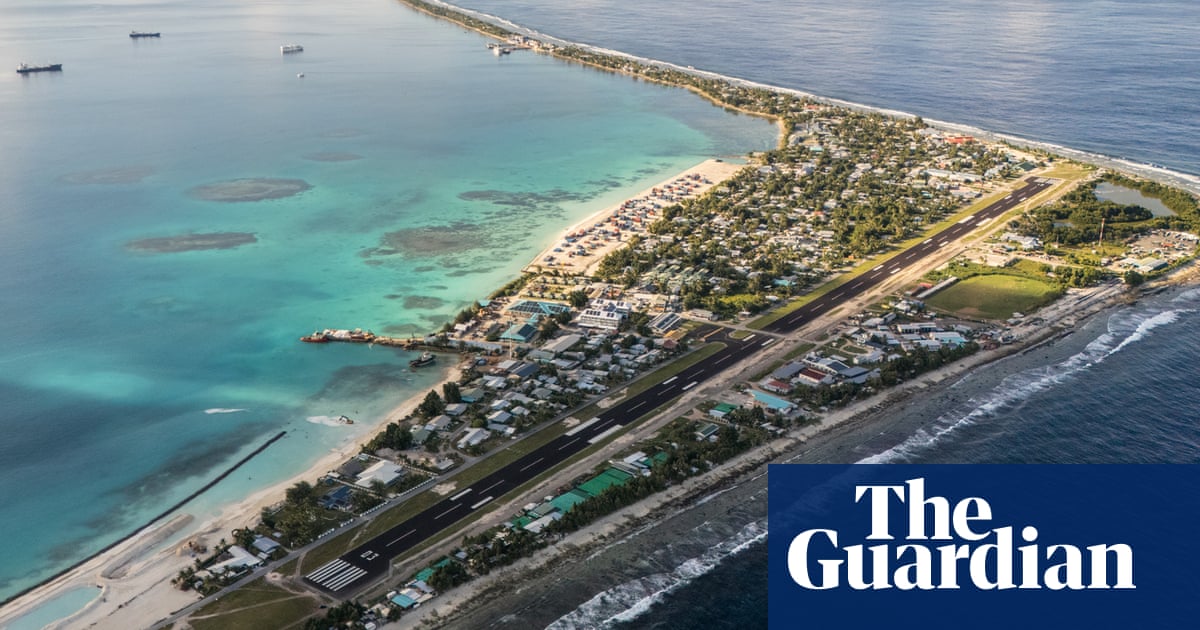States should be able to continue politically even if their land disappears underwater, legal experts have said.
The conclusions come from along-awaited reportby the International Law Commission that examined what existing law means for continued statehood and access to key resources if sea levels continue to rise due to climate breakdown.
Average sea levels could rise by as much as 90cm (3ft)by 2100 if climate scientists’worst-case scenarioscome true, and recent research suggests theycould even exceed projections. This is particularly important for small island developing states because many face an existential threat. But as well as the direct loss of land, rising sea levels cause flooding, threaten drinking water supplies and make farmland too salty to grow on.
Having waded through international law and scholarship and analysed state views and practices, legal experts concluded that nothing prevents nations from maintaining their maritime boundaries even if the land on which they are drawn changes or disappears. These boundaries give countries navigation rights, access to resources such as fishing and minerals, and a degree of political control.
There is also general agreement that affected nations should retain their statehood to avoid loss of nationality. Legal experts say these conclusions are essential for maintaining international peace and stability.
Speaking at theUN Oceans conference in Nice,Penelope Ridings, an international lawyer and member of the ILC, said the commission’s work was driven by the “fundamental sense of injustice” that sea level rise would be felt worst by the most vulnerable states, which had also contributed the least to the problem.Researchhas found that a third of present-day sea level rise can be traced to emissions from the 122 largest fossil fuel producers and cement manufacturers.
The Pacific nation of Tuvalu has been particularly vocal in its concerns. Sea levels on its nine islands and atolls have already risen by 4.8mm and areexpected to get much higherover the coming decades.
Australia was the first country to recognise the permanence of Tuvalu’s boundaries despite rising sea levels. In 2023, itsigned a legally binding treatycommitting to help Tuvalu respond to major disasters and offering special visas to citizens who want or need to move.Nearly a third of citizenshave entered a ballot for such a visa. Latvia followed with asimilar pledge of recognition.
At the oceans conference, the Tuvaluan prime minister, Feleti Teo, said his citizens were determined to stay on their land for as long as possible. The government has just finished the first phase of a coastal adaptation project, building concrete barriers to reduce flooding and dredging sand to create additional land.
Teo noted that the US$40m scheme was “very expensive” and it had taken years to secure moneyfrom the Green Climate Fund. He urged Tuvalu’s development partners to be “more forthcoming in terms of providing the necessary climate financing that we need to be able to adapt. And to give us more time to live in the land that we believe God has given us and we intend to remain on”.
Ridings said it was now up to states to take the commission’s work forward.
Sign up toDown to Earth
The planet's most important stories. Get all the week's environment news - the good, the bad and the essential
after newsletter promotion
Bryce Rudyk, a professor of international environmental law at New York University and legal adviser to the Alliance of Small Island States (Aosis), said the ILC had been very responsive to small states, which have traditionally not had their voices heard in matters of international law but are increasingly at the forefront of legal advances on climate change and marine degradation.
In recent years,Aosisand thePacific Islands Forumhave both declared that their statehood and sovereignty, as well as their membership of intergovernmental organisations such as the UN, will continue regardless of sea level rise.
The international court of justice, which will issue ahighly anticipated advisory opinionon climate change in the coming months, was petitioned by Aosis to affirm this.
